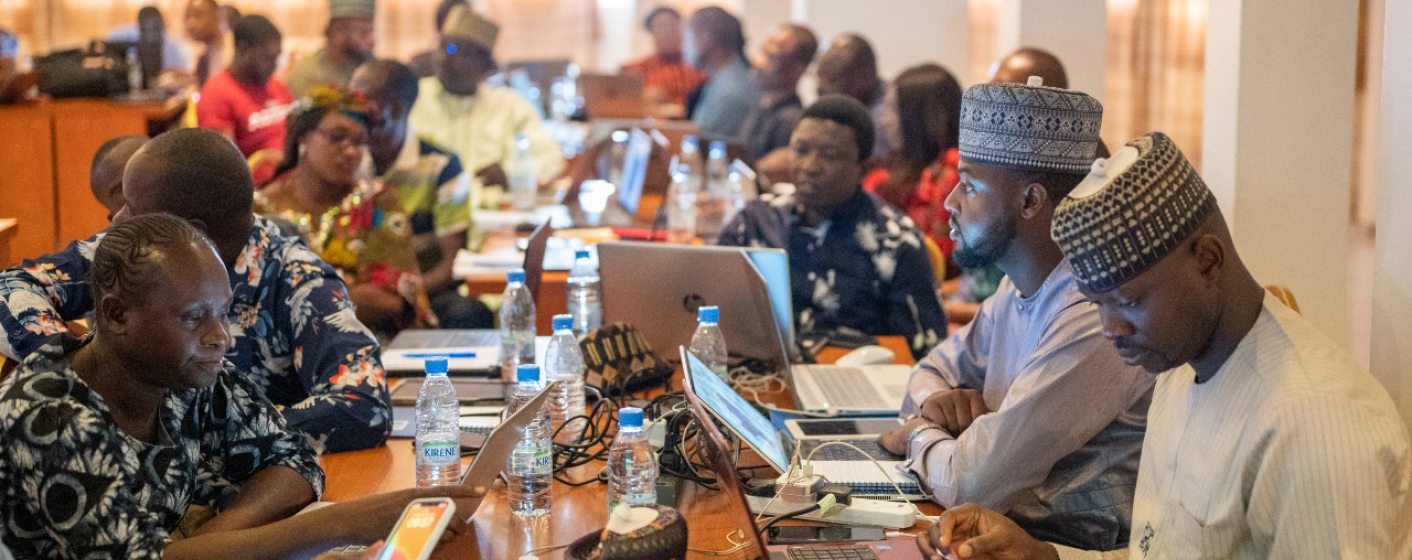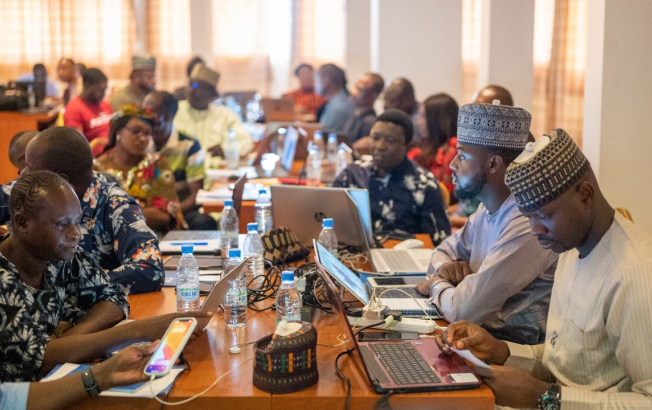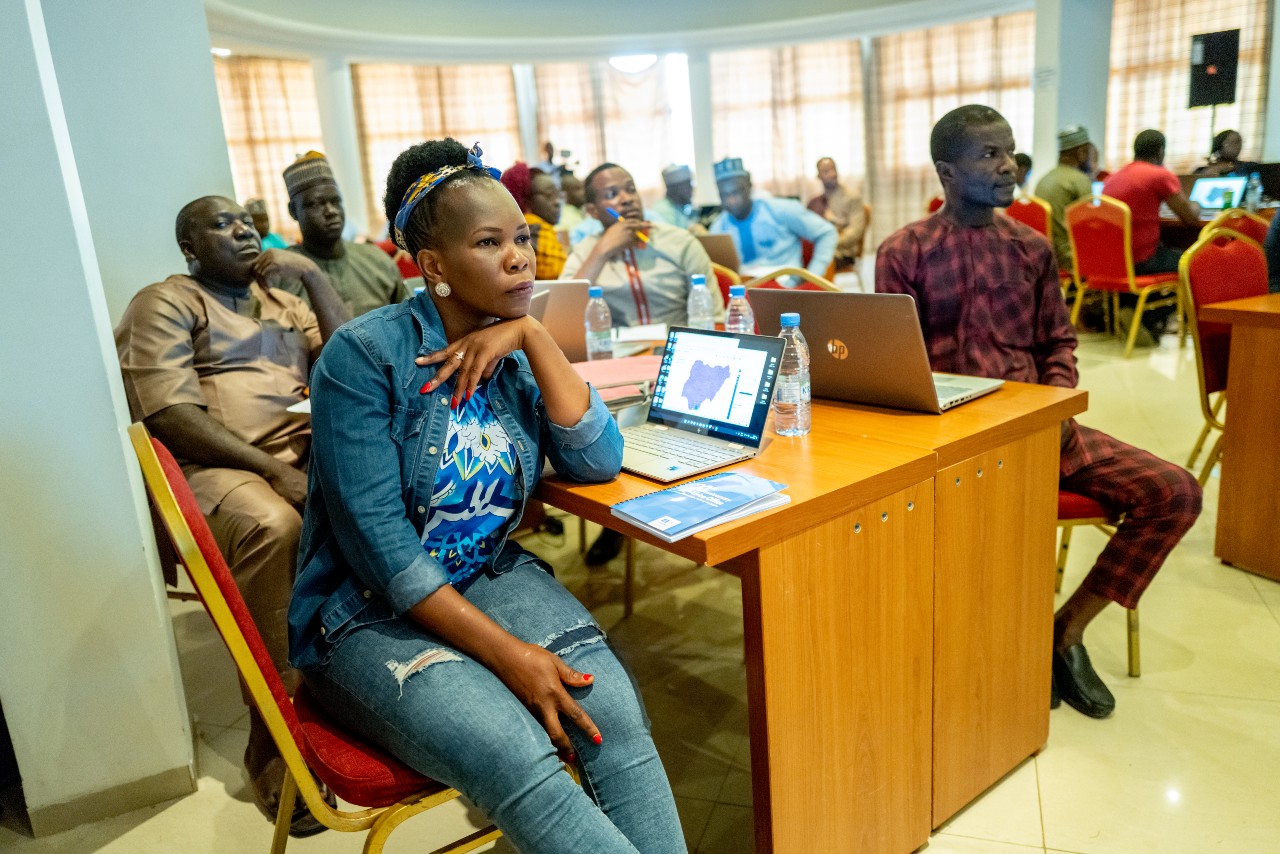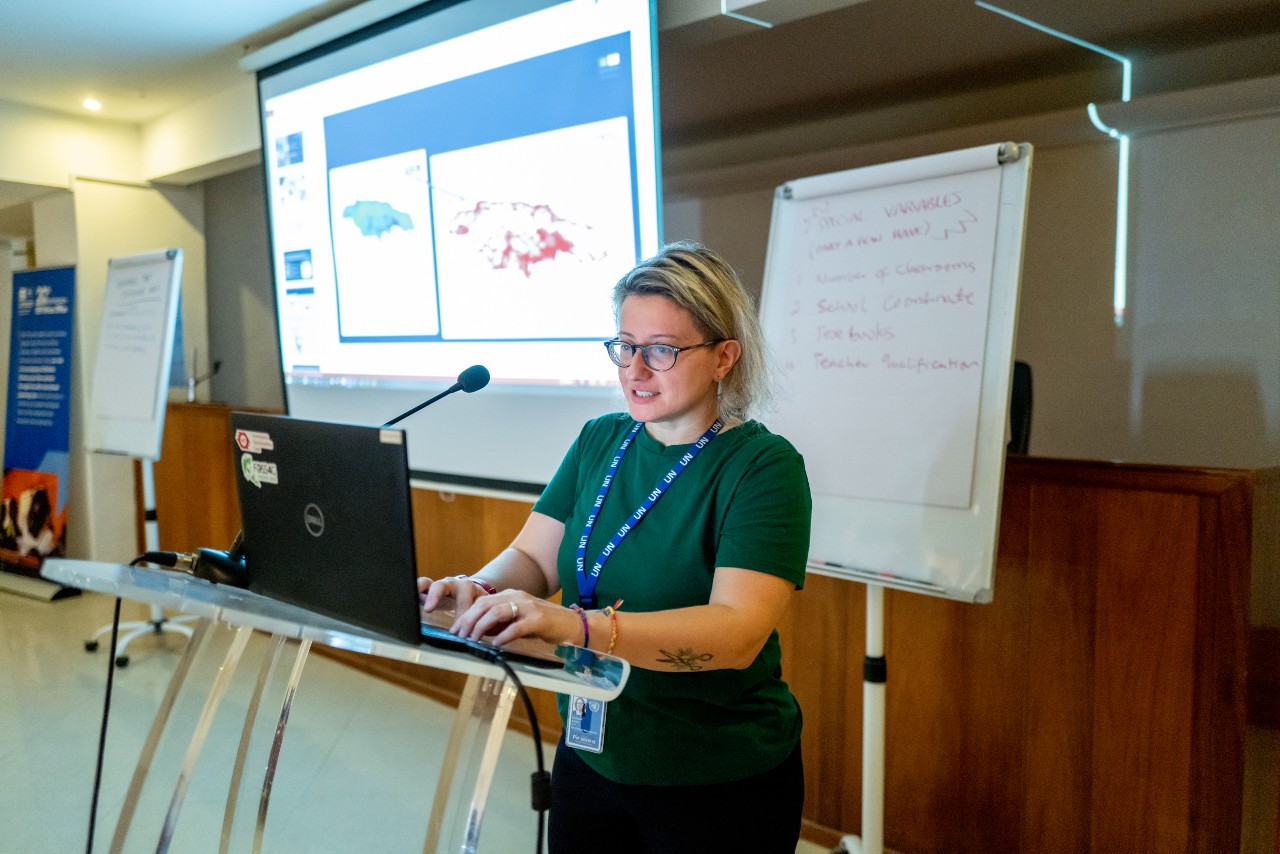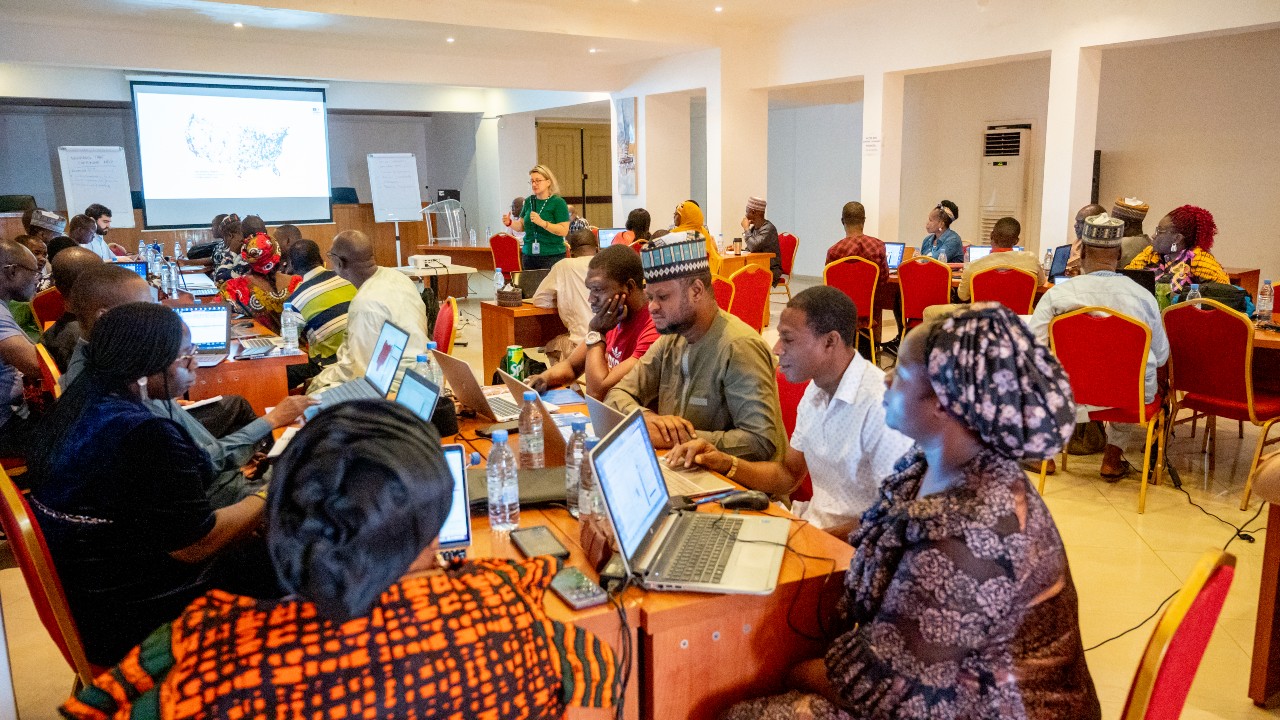50 Nigerian education planners trained in planning and management
Given the mandate and extensive experience of IIEP-UNESCO Dakar when it comes to capacity development of UNESCO’s African Member States in the analysis, planning, and implementation of education and training policies, IIEP was requested to develop and deliver a training course targeting education planners from Nigeria’s 36 states and the Federal Capital Territory.
The training was implemented on a hybrid mode i.e., partly online and partly face-to-face, and covered the three following modules:
- Use of administrative and household data (EMIS and HHD) for education sector planning, management and monitoring
- Education sector planning, and
- Microplanning (with a focus on supply of schools, especially junior secondary)
Renowned for supporting African countries to strengthen their capacity to plan and manage their education systems, IIEP UNESCO Dakar held a short education planning and management course for 50 education officials from Nigeria.
Using a capacity development approach through the creation of partnerships, training, and the production of methodological tools and knowledge, IIEP-UNESCO Dakar bases its interventions on technical expertise.
“The IIEP, International Institute for Educational Planning, has a huge experience in education sector planning. For this course we are bringing together many participants from Nigeria to work on educational sector planning because this is an important issue given the changing landscape of educational delivery, so IIEP is working with them on educational sector analysis, school mapping, educational planning, and mainstreaming gender in the educational analysis, education sector planning so on,” said Oswald Koussihouede, Education policy analyst, IIEP-UNESCO Dakar.
The Federal Ministry of Education requested training for education officials from its 36 states, including the 17 states under the Better Education Service Delivery for All (BESDA) project, to strengthen their capacities in the analysis, planning, and management of the education sector.

